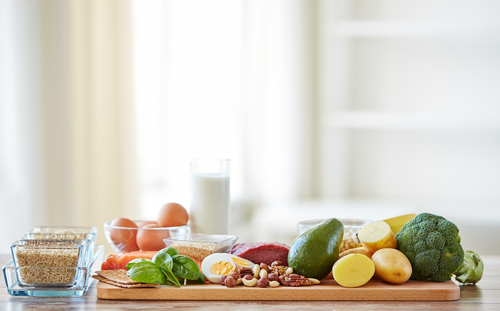
A healthy diet has the following: Fruit, vegetables, whole grains (e.g. unprocessed corn, millet, oatmeal and wheat) and legumes (e.g., beans and lentils). At least 400 grams (i.e. five servings) of fruits and vegetables each day. Legumes are a valuable part of a healthy diet. They contain enzymes and vitamins, minerals and are a source of dietary fiber. Three-quarters of the world’s legume species are grasses, while the remaining ones are vegetables. Grass-based legumes include lentil, kidney bean, and split pea. On the other hand, vegetable-based legumes include black beans, fava beans, chickpeas, and garbanzo beans.
Physical activity is another important part of a healthy diet. Eight hours or more of physical activity every week is recommended for maintaining optimal health. In addition, a healthy diet should include foods that are rich in nutrients but which are not calorie dense. Foods like chocolate, grapes, and pomegranates, for example, provide bursts of intense physical activity, which provides the body with much energy but does not consume excessive calories. Similarly, foods such as dried beans, nuts, avocados, pine nuts, walnuts and other nuts, seeds and soybeans are rich in calories but lack calories of other kinds, which makes them excellent choices when it comes to limiting calories.
Certain processed foods, especially those with high sugar content and empty calories, should be excluded from the diet, as well. Nuts and processed meats are considered to be junk foods by most nutritionists and should be severely limited or restricted all together, even though they are great sources of protein. Some experts recommend that fruits and vegetables are a significant portion of a healthy diet, especially in children. However, this recommendation may not be practical for most people, especially those who do not eat fruits on a daily basis. An alternative to a diet that is largely made up of junk foods is to choose good-for-you foods.
Legumes, beans, and nuts are examples of good-for-you foods. These foods are rich in fiber, which can make a person feel fuller after a meal, without loading him or her with additional calories. In addition, these foods are low in fat, and therefore can be included in a healthy diet, provided that fats are limited. Legumes include baked beans, kidney beans, Lima beans, and pole beans, while nuts are examples of good-for-you nuts, such as almonds, pecans, and walnuts. Pecans, peanuts, and walnuts, however, contain large amounts of fat, which may increase your cholesterol level and make weight gain more likely.
Fatty snacks may be the most obvious choice for a person trying to establish a healthy diet, but they should be used in moderation. Excessive intake of snacks, particularly those that have high sugar and fat content, may contribute to weight gain. Instead of snacking on potato chips, for example, you could snack on a handful of pretzels, which are lower in fats and sugar than chips. Good-for-you foods, like fruits and veggies, make good snacks, but they also provide good nutrition and can provide a healthy diet to those who cannot eat as many regular meals.
